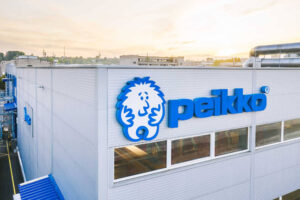
Finland’s Peikko Group Corporation has announced the commissioning of an industrial building for a future plant for the production of concrete joints and composite structures in Bila Tserkva Industrial Park, with planned investments of EUR3 million, according to Dmytro Kysylevskyi, deputy chairman of the parliamentary committee on economic development.
“The import of equipment will continue through May, after which the plant will start producing products for the needs of the construction industry,” he wrote on his Facebook page.
The MP clarified that Peikko Group will take advantage of tax and customs incentives for participants in the IP. In particular, the legislation provides for the possibility of exemption from VAT and import duties on equipment imports. The company will create about 50 jobs.
Peikko Group has production facilities in 12 countries. Since 2023, the company has been represented in Ukraine by its subsidiary Peikko Ukraine, which participates in infrastructure rehabilitation projects. Peikko’s annual turnover in 2023 amounted to EUR262 million.
As reported, last summer Peikko Group entered into an agreement with Bila Tserkva for the construction of a turnkey plant for the production of concrete joints and composite structures with an area of 2400 square meters. Bila Tserkva and Bila Tserkva-2, with an area of over 24 hectares and over 34 hectares, respectively, are projects of the UFuture holding company owned by entrepreneur Vasyl Khmelnytsky.
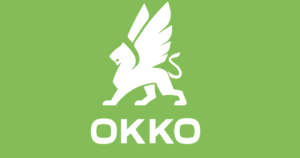
OKKO Group plans to fully launch a bioethanol plant worth EUR110 million in the third quarter of 2026, said Vasyl Danyliak, CEO of the group.
“This year we are going to fully commission the elevator and warehouse group and will be able to accept corn from our cluster. In the third quarter of 2026, we plan to fully launch the plant,” Danyliak said during the We build Ukraine conference on Thursday, which was broadcast online.
He noted that the total investment in the plant over 2024-2026 is EUR110 million, of which EUR35 million is the group’s own contribution and EUR75 million is debt financing. Of this, EUR60 million was provided by the EBRD for a period of nine years, and another EUR15 million by Raiffeisen Bank Ukraine for a period of seven years.
According to Danyliak, the annual capacity of the plant for bioethanol, the need for which is growing with the mandatory addition of 5% of this alcohol to motor gasoline from May 1, 2025, is 83 thousand tons, for livestock feed – 70 thousand tons, for corn processing – 270 thousand tons.
As reported, in June 2024, the European Bank for Reconstruction and Development (EBRD) and OKKO signed a EUR 60 million loan agreement for the construction of a new bioethanol plant in Ukraine at the Ukraine Recovery Conference in Berlin.
OKKO Group unites more than 10 diversified businesses in production, trade, construction, insurance, maintenance and other services. The flagship company of the group is Galnaftogaz, which operates one of the largest filling stations in Ukraine under the OKKO brand, with about 400 filling stations.
The group’s founder and ultimate beneficiary is Vitaliy Antonov.
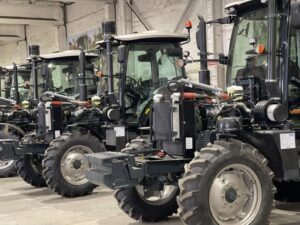
Agro Kar (Kropyvnytskyi) plans to start assembly-line production of tractors for agriculture in September this year in a new 2,000 sq m workshop currently under construction, said Dmytro Kysylevskyi, deputy chairman of the Verkhovna Rada Committee on Economic Development.
“The Made in Ukraine economic policy gives birth to new plants. Companies that previously only imported or repaired equipment are becoming manufacturers thanks to government programs,” he wrote on his Facebook page.
The total investment in the project is about UAH 100 million.
Kysylevsky said that Agro Kar has already invested UAH 30 million in launching tractor production – post production involves the production of each tractor at a separate site.
He noted that to implement the project of launching a new workshop, Agro Kar raised UAH 30 million under the 5-7-9% affordable loan program. Another UAH 8 million will be received as a state grant for the processing industry to purchase a laser machine.
“If the company reaches the required degree of localization, it will be able to join the program to compensate 25% of the cost of Ukrainian-made agricultural machinery,” Kysylevsky notes.
He specifies that domestic manufacturers of spare parts and components will be involved. In particular, Agro Kar purchases hydraulics and distributors for tractors from Hydrosila (Kropyvnytskyi), radiator blocks from Promtransenergo (Sumy), lubricants from JV Yukoil (Zaporizhzhia), control cables from Technoprivod (Rivne), high-pressure hoses – Motorimpeks (Kalush), batteries – Ista-Center (Dnipro), glass – Safe Glass Factory (Berdychiv), polymers and rubber seals, tanks – Poly Plast, wires and harnesses – Mac Farmer (both Kropyvnytskyi).
In addition, negotiations are underway to adapt the production of Rosava tires (Bila Tserkva) and Consima wheels (Dnipro) to the requirements of the company.
“Currently, the production volume is 12 tractors per month. After the launch of conveyor production, the company plans to increase production to 50 machines per month,” said Kysilevsky.
According to its website, Agro Kar has been operating since 2009. Currently, it repairs and modernizes agricultural machinery and supplies spare parts for agricultural machinery, including John Deere, Wil Rich, Case, DMI, Great Plains, Kinze, and Kraus.
“Agro Car also produces spare parts for agricultural machinery.
According to opendatabot, in 2024, the company doubled its net profit compared to 2023, to UAH 4.8 million, with revenue growing by 45% to UAH 74.4 million.
The company is owned by two local entrepreneurs, Andriy Teplyuk (60%) and Oleksandr Pustylnyk (40%).
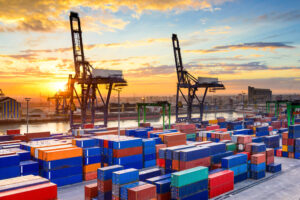
European and international financial institutions are ready to invest more than 10 billion euros in the development of the Trans-Caspian transport corridor, EU High Representative for Foreign Affairs Kaja Kallas said at a press conference in Ashgabat, Turkmenportal.com reported.
“The development of the Trans-Caspian Transport Corridor is a major ongoing project. European and international financial institutions are ready to invest more than 10 billion euros in this project,” Kallas said during a press conference on the 20th European Union-Central Asia Ministerial Meeting held in Ashgabat on March 27.
Kallas emphasized the growing desire for cooperation between the EU and Central Asian countries.
The EU plans to expand cooperation in various areas, she said.
Kallas emphasized the development of youth exchanges and strengthening contacts in business and academia.

Dragon Capital, a Kyiv-based investment company that invested about $700 million in Ukraine between 2015 and 2021, excluding reinvestments of several hundred million more, plans to invest $100 million in 2025 due to improved macroeconomic predictability and economic growth, anInterfax-Ukraine correspondent reports.
“In the middle of last year, we started considering new investments. This year, we plan to make about $100 million in new investments,” owner and CEO Tomas Fiala said at a conference titled ‘Logistics as a Driver of Economic Growth’ organized by the We Build Ukraine think tank in Kyiv on Tuesday.
The businessman added that it will be mainly financed by his own money and co-investors’ equity, while a smaller part, “maybe up to a quarter,” will be borrowed.
He clarified that out of the $700 million of investments in 2015-2021, the share of debt financing was about a third, up to $250 million, of which 80% has already been repaid, but there was also a significant portion of private Western investors, either European or American.
“We really believe that 2025 is the first year during the war when we have much better macroeconomic predictability. We (Ukraine – IF-U) have fully received committees to finance our budget deficit for the whole of 2025 and almost the whole of 2026,” Fiala explained the readiness to resume investments.
He reminded that currently, taking into account the $50 billion financing of Ukraine under the ERA instrument from frozen Russian assets, the total confirmed financing of the country is $56 billion, against the need to finance the budget deficit in 2025 of $40 billion.
“That’s if there is no truce, but if it happens, we will need almost $10 billion less money,” said the owner of Dragon Capital.
He added that, given this situation, a fairly stable exchange rate and economic growth can already be predicted in 2025: by 3% if the war continues, and by 5-7% if it ends.
“We are not the only ones paying attention to the ceasefire negotiations. You can look at the following “barometer” – the prices of Ukrainian Eurobonds traded in London. These are dozens of foreign investors who are assessing Ukraine’s risks. The prices of these bonds have been rising for the last 2 years, but this growth has accelerated since October last year,” Fiala said.
According to him, new investors are assessing the Ukrainian risk through sovereign Eurobonds, focusing on yields of 13-14% per annum – this is the rate at which they are willing to buy the Ukrainian government’s debt.
Fiala added that investors are willing to buy corporate bonds of reliable Ukrainian companies such as MHP and Kernel with a yield of about 10%, and sometimes even 9%.
Dragon Capital is one of the largest investment and financial services groups in Ukraine, providing a full range of investment banking and brokerage services, private equity, and asset management to institutional, corporate, and private clients. The company was founded in 2000 in Kyiv.
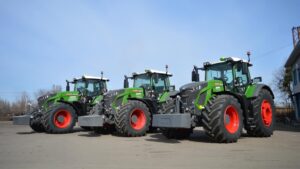
Astarta, Ukraine’s largest sugar producer, plans to invest over $21 million in 2025 to upgrade its agricultural machinery fleet, the company’s press service reports.
According to the report, 150 units of new equipment have already been contracted, including heavy tractors, sprayers, self-propelled beet harvesters, sowing complexes, precision seeders, tillage machines and other equipment. Some of the equipment has been delivered to the agro-industrial holding’s production facilities and will be actively used in the spring field work. This will help increase the efficiency of agricultural production and optimize tillage and harvesting processes, as well as preserve soil health.
“The purchase of modern machinery is one of the elements of our decarbonization strategy, which involves reducing greenhouse gas emissions through more fuel-efficient equipment and the use of precision and regenerative farming practices. In order to reduce the impact of agricultural production on climate change, Astarta continues to scale up such practices, in particular, reducing the number and depth of tillage and increasing the area under cover crops,” said Andriy Zagorulko, Director of Crop Production, Logistics and Mechanization.
According to him, in 2024, the agricultural holding increased the area under no-till tillage and green manure. It has expanded the differentiated and local application of mineral fertilizers, which provides for their optimal use. In addition, local fertilization simultaneously with main tillage significantly reduces fuel consumption due to fewer technological operations.
“The updated machinery fleet will allow us to respond more quickly to changing weather conditions, be much more cost-effective and reduce dependence on third-party services,” the agricultural holding is convinced.
“Astarta is a vertically integrated agro-industrial holding company operating in eight regions of Ukraine. It includes six sugar factories, agricultural enterprises with a land bank of 220 thousand hectares and dairy farms with 22 thousand cattle, an oil extraction plant in Globyno (Poltava region), seven elevators and a biogas complex.
In 2023, the agricultural holding reduced its net profit by 5.0% to EUR 61.9 million, and its EBITDA decreased by 6.1% to EUR 145.77 million, while revenue increased by 21.3% to EUR 618.93 million.